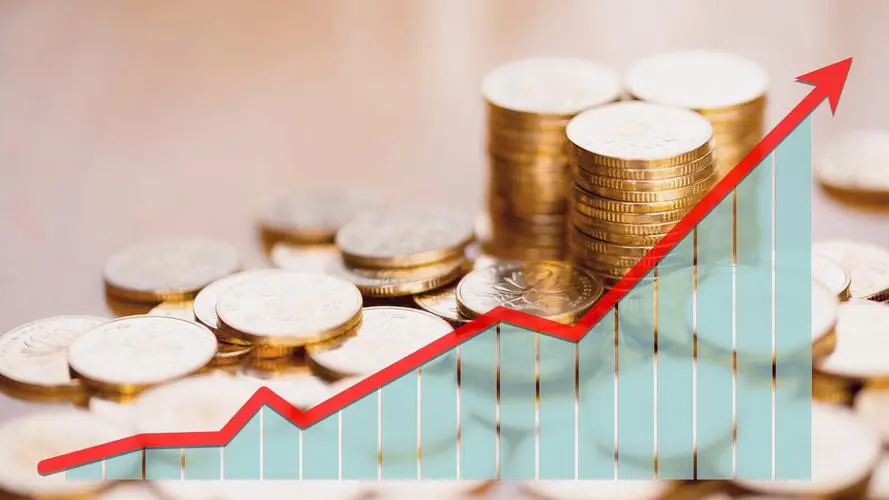美股震荡,加密货币暴跌:特朗普效应消退后的市场反思
Meta Description: 美股、加密货币、比特币、通胀、美联储、特朗普、经济预测,深入分析市场波动背后的原因及未来走势。
Whoa, hold on to your hats, folks! The financial markets have been on a wild rollercoaster ride lately, leaving many investors scratching their heads. One minute we're seeing the Dow Jones soaring, the next we're watching Bitcoin plummet like a lead balloon. This isn't just some random market fluctuation; it's a complex interplay of factors, from the Fed's monetary policy to the unpredictable pronouncements of President-elect Trump. Let's dive deep into the recent market turmoil, exploring the key drivers behind the chaos and offering some expert insight into what the future might hold. We'll unpack the intricacies of the situation, examining the connection between US economic data, the crypto crash, and the looming threat of a government shutdown. Get ready for a comprehensive analysis that goes beyond the headlines and delivers actionable, insightful commentary for savvy investors. We'll be looking at everything from the impact of the latest PCE data to the record-breaking outflow from Bitcoin ETFs, examining the role of speculation and explaining why seasoned market veterans are holding their breath. So buckle up, because this is going to be one heck of a ride! This isn't just another news report; it's a deep dive into the heart of the matter, offering clarity amidst the confusion, and providing a roadmap for navigating the turbulent waters of the current financial landscape.
美股及加密货币市场波动:深度分析
The recent market volatility has been, to put it mildly, intense. We saw a dramatic dip in cryptocurrencies, particularly Bitcoin, following its recent all-time high. Simultaneously, US stocks experienced a rollercoaster day, initially opening lower but eventually recovering to close in the green. This seemingly contradictory movement highlights the interconnectedness of global markets and the influence of various economic and political factors.
The situation is far from simple. Several intertwined factors contributed to this turbulent period. Let's break them down:
1. The Fed's Hawkish Stance: The Federal Reserve's decision to slow the pace of interest rate cuts sent ripples throughout the market. This move, perceived as "hawkish," signaled a less accommodative monetary policy, impacting both traditional stocks and riskier assets like cryptocurrencies. Investors, anticipating a less supportive environment, reacted by selling off assets, contributing to the downward pressure. This isn't just theory; it's a direct reflection of market sentiment responding to policy changes. Remember, the Fed's actions are not taken lightly; they are based on extensive economic data analysis and projections.
2. Inflation Concerns: The release of the November core PCE price index data, while showing a slight moderation in inflation, wasn't enough to completely alleviate concerns. The lingering inflation worries continue to fuel uncertainty and impact investor decisions. This uncertainty is translating into volatility across asset classes, from stocks to bonds to cryptocurrencies. We’re seeing a clear correlation between inflation expectations and market behavior – a higher-than-expected inflation figure tends to lead to sell-offs.
3. The Looming Government Shutdown: The potential for a US government shutdown added another layer of uncertainty to the already volatile market. Political gridlock and the threat of a shutdown often inject significant volatility into the market, as investors react to the uncertainty and potential negative consequences for the economy. This isn't just speculation; historically, government shutdowns have negatively impacted investor confidence and caused market fluctuations.
4. Bitcoin's Sharp Correction: Bitcoin's dramatic price drop, exceeding 12% from its recent all-time high, underscores the inherent volatility of the cryptocurrency market. The record-breaking outflow of $680 million from Bitcoin ETFs further highlights the shifting investor sentiment. This mass sell-off wasn't just a random event; it was a reaction to a multitude of factors, including the Fed's policies, inflation concerns, and the general market uncertainty.
5. The Trump Factor (and its Fade): The initial optimism following the election of President-elect Trump, particularly within the crypto community due to his perceived pro-crypto stance, appears to have waned. This shift in sentiment likely contributed to some of the sell-off in cryptocurrencies. It's important to remember, though, that market sentiment is fickle; it can swing dramatically based on news, perception, and speculation.
6. Macroeconomic Uncertainty: The overall global macroeconomic environment remains uncertain, with geopolitical risks, supply chain disruptions, and other factors contributing to investor anxiety. This uncertainty leads to a risk-off sentiment, where investors move away from riskier assets and seek safety in more stable investments. It's crucial to understand that the current market volatility isn't happening in isolation; it's a reflection of broader global economic trends.
The Impact on Cryptocurrencies
The crypto market took a significant hit, with many coins experiencing double-digit percentage drops. The situation is far from a simple “sell-off.” It’s a confluence of factors:
- Regulatory Uncertainty: The regulatory landscape for cryptocurrencies remains unclear in many jurisdictions, leading to investor hesitancy and potential sell-offs.
- Institutional Adoption: While institutional adoption of crypto is growing, it's not yet widespread, leaving the market vulnerable to large-scale sell-offs driven by institutional investors.
- Market Sentiment: Investor sentiment towards cryptocurrencies can swing wildly, influenced by news events, regulatory developments, and market speculation.
Navigating the Market Volatility
Given the complexity of the current market situation, investors need a strategic approach to navigate the volatility:
- Diversification: A well-diversified portfolio can help mitigate risk and protect against significant losses in any single asset class.
- Risk Management: Implementing robust risk management strategies, including stop-loss orders and position sizing, is essential.
- Long-Term Perspective: Maintaining a long-term investment horizon can help investors weather short-term market fluctuations.
- Stay Informed: Keeping abreast of economic news, geopolitical events, and regulatory developments is crucial.
Frequently Asked Questions (FAQs)
Q1: Will the stock market continue to decline?
A1: Predicting the stock market's future direction is impossible. However, the current market volatility suggests increased uncertainty. Investors should adopt a cautious approach and have a well-defined risk management strategy.
Q2: Is Bitcoin a good investment right now?
A2: Bitcoin's high volatility makes it a risky investment. Investors should only invest what they can afford to lose and thoroughly research before committing any funds.
Q3: What impact will the government shutdown have on the market?
A3: A government shutdown can create significant uncertainty, impacting investor confidence and potentially causing further market volatility.
Q4: How can I protect my investments during this volatile period?
A4: Diversification, risk management, and a long-term investment perspective are vital during volatile periods.
Q5: What is the outlook for inflation?
A5: While recent data suggests some moderation, inflation remains a concern, impacting monetary policy and market sentiment.
Q6: Should I sell my crypto holdings?
A6: This is a personal decision based on your risk tolerance and investment goals. Consulting with a financial advisor can help you make an informed decision.
Conclusion
The recent market volatility reflects the complex interplay of macroeconomic factors, monetary policy decisions, and political events. Investors must remain vigilant, adopt a cautious approach, and develop robust risk management strategies to navigate these uncertain times. Remember, staying informed, diversifying your portfolio, and maintaining a long-term perspective are key to successfully navigating the financial markets. The ride may be bumpy, but with careful planning and a cool head, you can weather the storm. Stay tuned, because the market's next move is anyone's guess!



